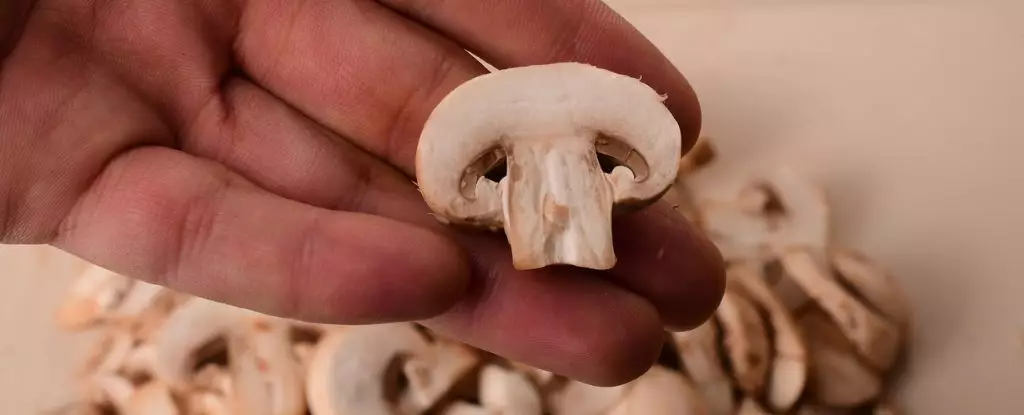When it comes to nutrition, many of us often think about gourmet superfoods packed with vibrant colors and exotic names, overlooking humble ingredients found in our kitchens. Among these overlooked performers is the white button mushroom (Agaricus bisporus), which has recently piqued the interest of cancer researchers due to its potential therapeutic benefits. While traditionally relegated to the category of a culinary staple, recent studies reveal that this innocuous fungi may possess the power to influence prostate cancer treatment, prompting a re-evaluation of how we perceive ordinary foods.
The white button mushroom is the most widely cultivated edible mushroom globally, primarily known for its mild flavor and versatility in various dishes. Despite its prominence in many cuisines, it has not been closely associated with medicinal properties—until now. Emerging research indicates its extracts might contribute significantly to slowing the progression of prostate cancer, shedding light on the therapeutic potential present in everyday food.
Recent studies conducted by the City of Hope, a prominent cancer treatment and research institution in the United States, highlight the mushroom’s potential as an adjuvant therapy. Their research aims to lay the groundwork for understanding how these fungi can complement traditional cancer treatments. Professor Shiuan Chen, a leading cancer biologist, explains that integrating “food as medicine” approaches into mainstream medical practices could revolutionize cancer care, making it more holistic and accessible to patients.
Prostate cancer poses a significant challenge due to its ability to develop mechanisms that evade the immune system. One such way is through the production of myeloid-derived suppressor cells (MDSCs), which can dampen the body’s immune response, rendering traditional treatments less effective. The capability of white button mushrooms to influence these suppressor cells is a point of significant interest for researchers.
In earlier investigations, the City of Hope team saw noteworthy results when assessing the effects of white button mushroom extract. Volunteers who ingested mushroom tablets were observed to have reduced levels of MDSCs and even had prostate cancer markers in their bloodstream drop to undetectable levels after several months. This finding was both astounding and encouraging, suggesting that this common mushroom could potentially act as a counterforce against prostate cancer’s evasive tactics.
Following these promising observations, researchers have expanded their inquiry into more rigorous testing, including studies using animal models. The initial results from mouse trials have shown that the white button mushroom extract not only delayed tumor growth but also positively influenced survival rates. Mice administered this extract exhibited decreased levels of tumor-derived suppressor cells, suggesting that the mushrooms effectively improve immune responses against cancer.
Current phase II clinical trials are exploring these effects in human patients, analyzing blood samples to further understand the extract’s influence on immune profiles. Preliminary outcomes indicate that patients treated with white button mushroom extracts experience a rise in anti-tumor immune cells while suppressor cells diminish, offering hope for a novel therapy integrated with existing cancer treatments.
Despite the growing body of evidence pointing to the potential of white button mushrooms, the exact mechanisms behind these effects remain largely unresolved. The mushroom contains a complex mix of bioactive compounds, including soluble fibers, proteins, and phytochemicals, which could be working in concert to elicit these anti-cancer properties.
Understanding the mechanisms of action is complicated due to the synergistic nature of the compounds at play. Therefore, ongoing research prioritizes validating the safety and efficacy of the mushroom extract before delving into which particular components might be responsible for its medicinal effects. The City of Hope researchers, led by Xiaoqiang Wang, emphasize that while initial results are promising, more extensive studies are essential to fully understand these dynamics.
The resurgence of interest in the white button mushroom demonstrates how a reevaluation of ordinary food items can yield extraordinary possibilities in medical science. As current research continues to unfold, there remains optimism that white button mushrooms might evolve from kitchen favorites to vital players in cancer treatment protocols. As we journey towards integrating nutritional science with traditional medicine, the principle of “food as medicine” may not just be a catchy slogan—it could herald a new age of holistic healthcare strategies aimed at combating diseases like cancer.

